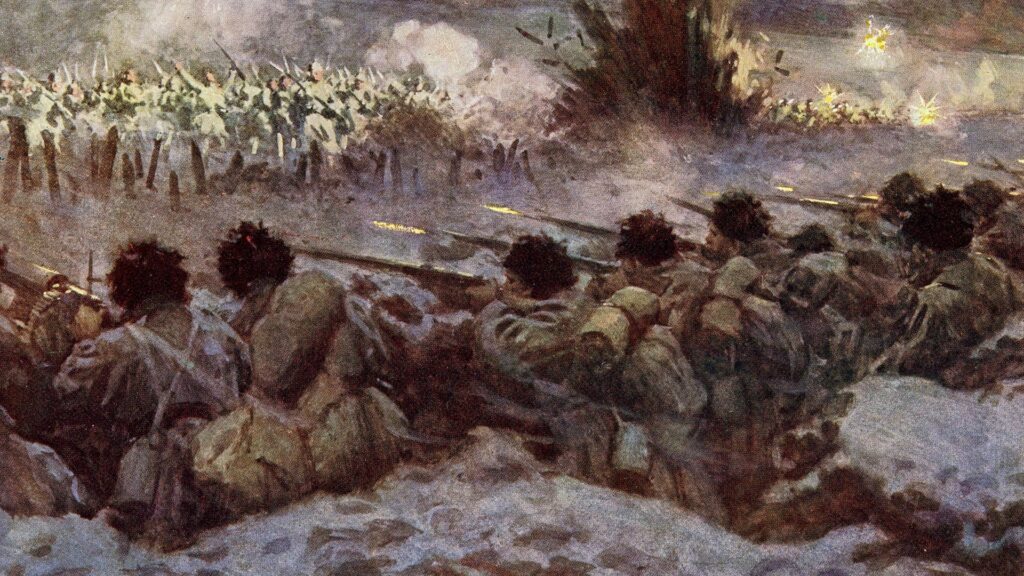This content is an article that explores the realities of life on the Western Front during World War I. It delves into the nature of trench warfare and its impact on soldiers and civilians. The article discusses the trench system, daily conditions in the trenches, the role of infantry and artillery, the mental and emotional toll on soldiers, the rotating shifts of soldiers, and the psychological impact of trench warfare. It also examines the impact on civilians, including the destruction of towns and villages, supply chain challenges, and the shift in gender roles. The article concludes by emphasizing the devastating effects of war.
Uncovering the Trench Warfare: Life on the Western Front During World War I
Introduction
The Western Front during World War I is infamous for its brutal trench warfare. This article aims to delve deeper into the realities of life on the Western Front, exploring the nature of trench warfare and its impact on soldiers and civilians alike.
The Trench System
The trench system was a network of fortified ditches built parallel to one another, stretching over hundreds of miles from the North Sea to the Swiss border. It served as a defensive structure for both sides, providing shelter and a vantage point for attacking the enemy.
Daily Conditions
Life in the trenches was marked by constant danger and discomfort. Soldiers lived in close proximity, often standing for hours in mud and water. The trenches were filled with rats, lice, and other vermin, leading to unsanitary conditions and the spread of diseases.
Infantry and Artillery
The infantry played a crucial role in the trench warfare. They were responsible for manning the front lines, engaging in combat, and launching attacks on enemy positions. Artillery bombardments and sniper fire were ever-present, making movement outside the trenches extremely risky.
Mental and Emotional Toll
The constant exposure to death, the noise of battle, and the limited opportunities for rest took a significant toll on the mental and emotional well-being of those involved in trench warfare. Soldiers experienced extreme stress, trauma, and developed conditions such as shell shock.
Rotating Shifts
Due to the unbearable conditions, soldiers were rotated in and out of the front lines on a regular basis. This allowed for some respite, but it also meant that soldiers had to adapt to new trenches frequently. The constant change and uncertainty added to the mental strain.
The Psychological Impact
The psychological impact of trench warfare was substantial. Witnessing the horrors of war and engaging in close combat took a toll on soldiers’ morale. Many suffered from anxiety, depression, and post-traumatic stress disorder, which were often overlooked during that era.
Impact on Civilians
Trench warfare not only affected soldiers but also had a significant impact on civilians living near the front lines. Entire towns and villages were destroyed due to artillery fire, and civilians were often caught in the crossfire. The constant fear and displacement created immense hardship.
Supply Chain Challenges
The war disrupted the supply chain, leading to shortages of food, fuel, and other essential items for civilians. This created a precarious situation, with many struggling to survive amidst the chaos and destruction.
Shift in Gender Roles
The men fighting in the trenches left a void in the labor force, leading to a significant shift in gender roles. Women took on traditionally male-dominated jobs, supporting the war effort and assuming new responsibilities, which paved the way for societal changes in the years to come.
Conclusion
The experience of trench warfare on the Western Front during World War I was harrowing for both soldiers and civilians alike. The conditions in the trenches, the physical and psychological toll on individuals, and the far-reaching consequences on societies are an important reminder of the devastating effects of war.
